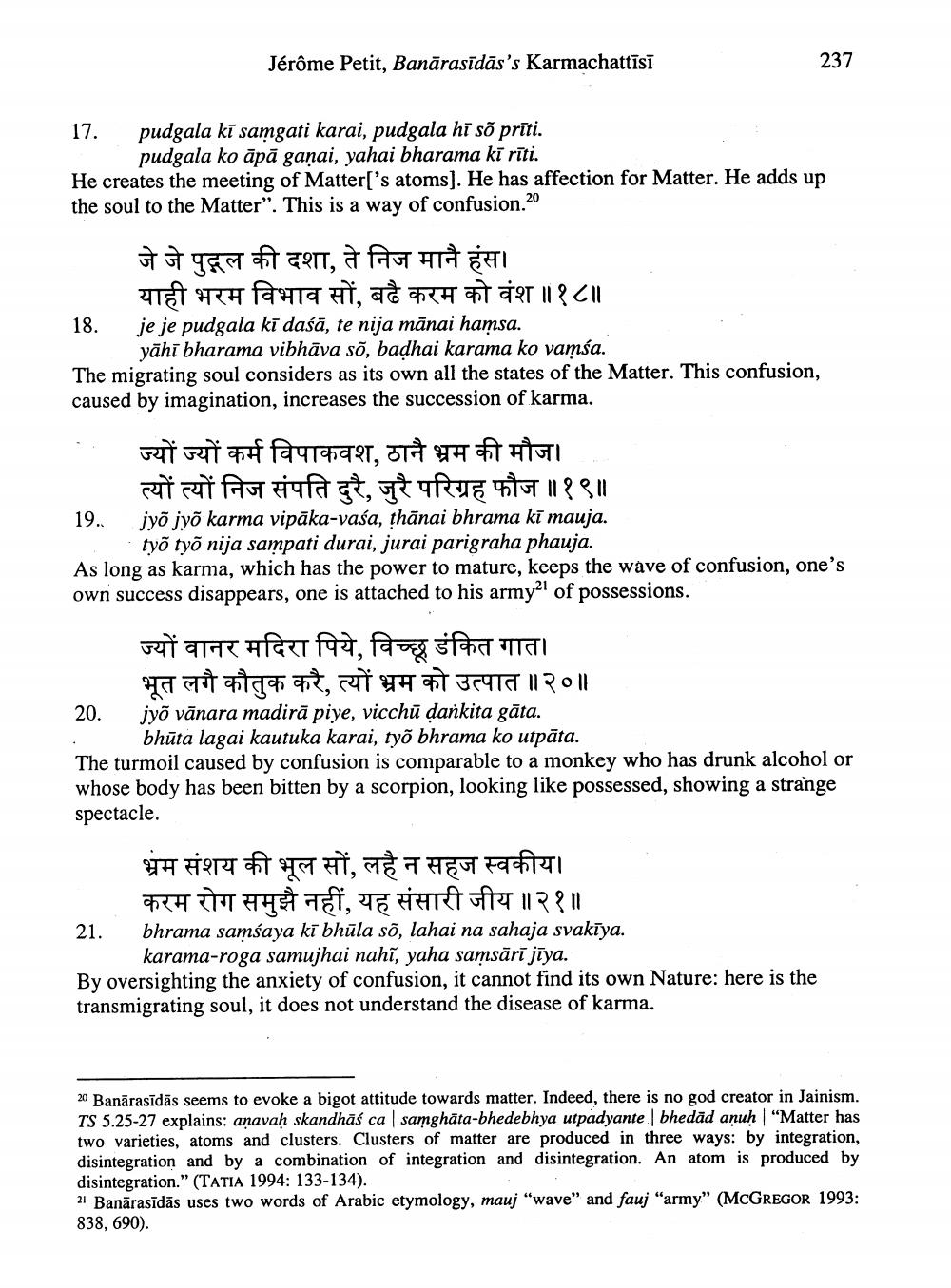________________
Jérôme Petit, Banārasīdās's Karmachattīsī
237
17.
pudgala kī samgati karai, pudgala hi sõ prīti.
pudgala ko āpā ganai, yahai bharama kī rīti. He creates the meeting of Matter['s atoms]. He has affection for Matter. He adds up the soul to the Matter". This is a way of confusion.20
जे जे पुद्गल की दशा, ते निज मानै हंस। याही भरम विभाव सों, बढे करम को वंश ॥१८॥ je je pudgala ki daśā, te nija mānai hamsa.
yāhi bharama vibhāva sē, badhai karama ko vamśa. The migrating soul considers as its own all the states of the Matter. This confusion, caused by imagination, increases the succession of karma.
18.
ज्यों ज्यों कर्म विपाकवश, ठानै भ्रम की मौज।
त्यों त्यों निज संपति दुरै, जुरै परिग्रह फौज ॥१९॥ 19... jyojyo karma vipāka-vasa, thānai bhrama ki mauja.
työ tyõ nija sampati durai, jurai parigraha phauja. As long as karma, which has the power to mature, keeps the wave of confusion, one's own success disappears, one is attached to his army of possessions.
ज्यों वानर मदिरा पिये, विच्छू डंकित गात।
भूत लगै कौतुक करै, त्यों भ्रम को उत्पात ॥२०॥ 20. jyõ vānara madirā piye, vicchū dankita gāta.
bhūta lagai kautuka karai, tyõ bhrama ko utpāta. The turmoil caused by confusion is comparable to a monkey who has drunk alcohol or whose body has been bitten by a scorpion, looking like possessed, showing a strange spectacle.
भ्रम संशय की भूल सों, लहै न सहज स्वकीय।
करम रोग समुझे नहीं, यह संसारी जीय ॥२१॥ 21. bhrama samsaya ki bhūla sõ, lahai na sahaja svakīya.
karama-roga samujhai nahi, yaha samsārijiya. By oversighting the anxiety of confusion, it cannot find its own Nature: here is the transmigrating soul, it does not understand the disease of karma.
20 Banārasīdās seems to evoke a bigot attitude towards matter. Indeed, there is no god creator in Jainism. TS 5.25-27 explains: anavah skandhas ca | samghāta-bhedebhya utpadyante | bhedad anuh | "Matter has two varieties, atoms and clusters. Clusters of matter are produced in three ways: by integration, disintegration and by a combination of integration and disintegration. An atom is produced by disintegration." (TATIA 1994: 133-134). 21 Banārasīdās uses two words of Arabic etymology, mauj "wave" and fauj "army" (MCGREGOR 1993: 838,690).




